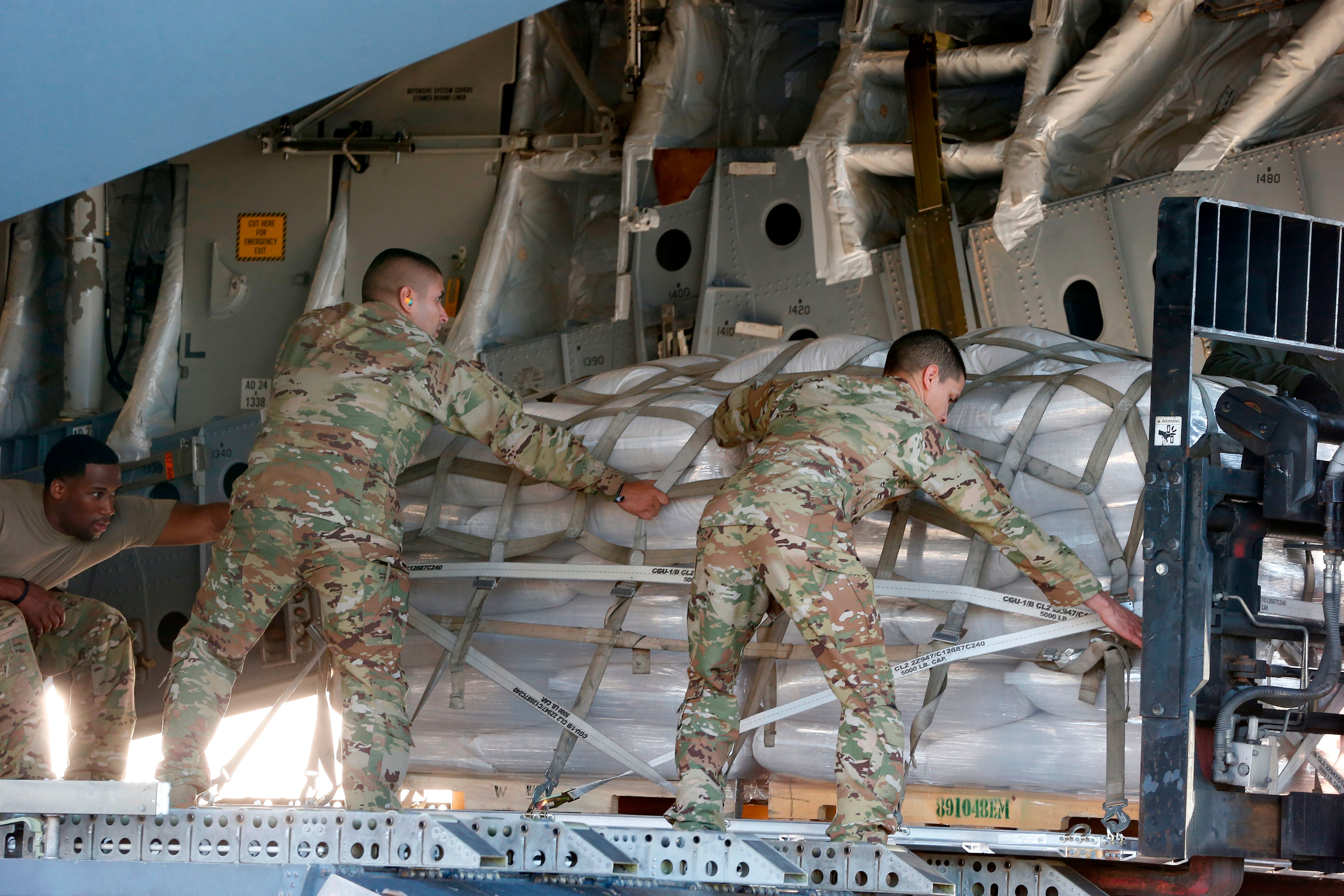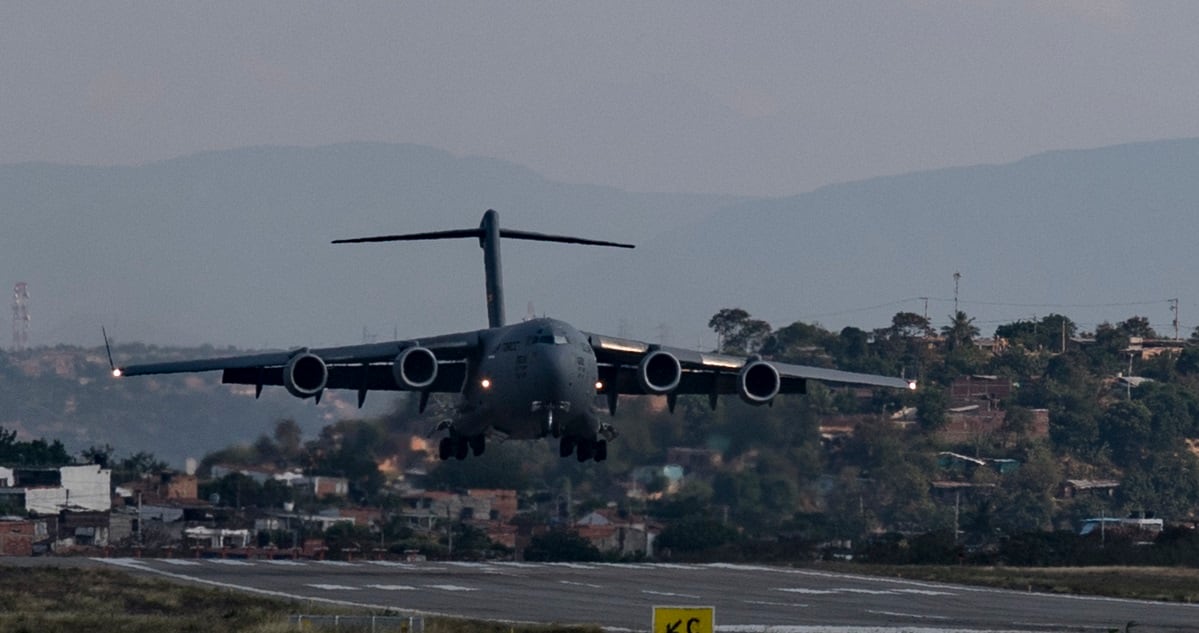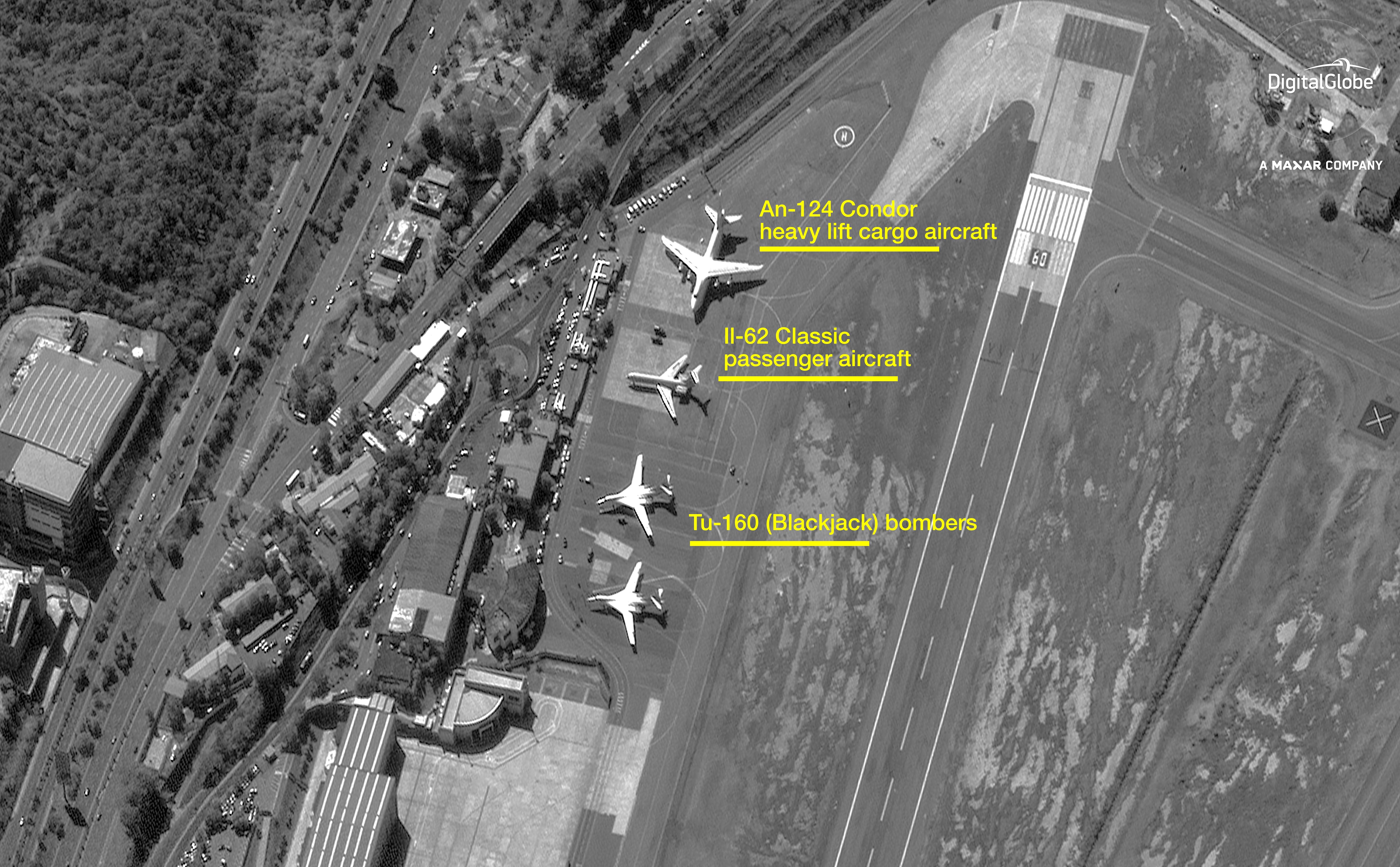A day after an unsuccessful coup attempt in Venezuela, senior U.S. government officials say U.S. military force is available if that’s what it takes to restore democracy there. But the Pentagon says it has not received any orders to prepare war plans.
Asked during a congressional hearing Wednesday if the Pentagon was given instructions to prepare for war in Venezuela, a top official said “no," though one former senior CIA analyst expressed skepticism and military officials added that they always have contingencies prepared.
“We of course always review available options and plan for contingencies. But in this case, we have not been given the sort of orders that you’re discussing, no," said Kathryn Wheelbarger, acting assistant defense secretary for international security affairs. “In terms of Russian and Chinese influence at large in the region, we’re very focused on countering that.”
Adm. Craig S. Faller, who helms U.S. Southern Command, had a message for the Venezuelan security forces: “Cuba and Russia have invaded your country and disgraced your sovereignty. You have a chance to do the right thing and alleviate the suffering of your people.”
"Our job is to be ready, and we’re on the balls of our feet,” Faller said, adding that the president has been clear that all options are on the table. “The details of what that might look like I will take in a closed session.”
Countering that Cuban and Russian influence is currently confined to the information and intelligence space, as well as security cooperation with local allies, Faller said. If the Venezuelan people overthrow Maduro, the U.S. military is poised to provide “mil-to-mil” training to strengthen their security posture in the aftermath.
A “complete embargo" of Cuba is also possible, as the country is central in “all things bad in this hemisphere,” Faller added. “We’re carefully looking at plans and what it would take to do that,” but would not going into further detail in an open forum.
Venezuela has been sliding into increased violence under the authority of Nicolas Maduro, who President Donald Trump calls illegitimate. The U.S. and its international partners are instead backing opposition leader Juan Guaidó, who called for a military uprising on Tuesday. Only a small group of soldiers broke ranks, however.
“Things have changed significantly with the utter failure of yesterday’s coup,” said Fulton T. Armstrong, a former senior CIA analyst, National Intelligence Officer for Latin America and National Security Council staffer. “What options does the Trump administration have left? And the rhetoric is over the top.”
“Of course, the military planning has already been done, and they’ve already identified how many days they would need to prepare and execute each option," Armstrong said. "The planners know what the intel packages look like. They’re really quite sophisticated. It’s a push-button sort of thing: when they get the order boom, boom, boom, things happen.”
RELATED

Secretary of State Mike Pompeo was blunt Tuesday in an interview with Fox News, saying that the U.S. was “prepared to consider military action if that’s what it takes to restore the democracy.”
“The president’s been consistent and unambiguous about that,” he said. “The option to use military force is available if that’s what is ultimately called for. We hope it’s not, we hope there can be a peaceful resolution and that Maduro will leave without violence."
While Maduro is incompetent and brutish, an invasion of Venezuela at this time could spur intense local support against the Americans, Armstrong warned.
“This would not necessarily be a cake walk for the U.S. military,” he said, adding that snipers, sabotage and even improvised explosive devices would be in the cards, as Venezuelan security forces have shown strong loyalty to the Maduro regime.
More likely options: Surgical strikes, provocations along the Venezuelan border or a “hostage rescue” operation to recover the five American citizens who were arrested during a Citgo business meeting by Maduro forces in November 2017.

SOUTHCOM commander Faller told Congress that the massive influence of Russia, China and Cuba in Venezuela was a major cause for concern.
“Every security challenge and threat in our hemisphere is compounded by the crisis in Venezuela," Faller said Wednesday. “Russia provides lifelines through loans, technical and military support.”
China is also a large state creditor, “saddling the people with more than $50 billion in debt and exporting surveillance technology used to monitor and repress the Venezuelan people," Faller added. “Cuba provides critical personnel and resources to prop up a corrupt and illegitimate dictator.”
The influence of Cuban military advisers is probably exaggerated, according to Armstrong, as are accusations that the U.S. military has been actively training Venezuelan exiles in the Everglades.
Both accusations “could be just pure disinformation,” Armstrong said.
“The administration continues to tell fantastic versions of 25,000 Cuban military advisers with guns,” he said, adding that the Venezuelan military has had the opportunity for overthrow Maduro for some time, but has not.
“The administration, unfortunately, has put out so much rubbish, and they believe some of their rubbish, that they’ve created unfulfilled expectations,” Armstrong said. “And when U.S. administrations of both parties do that, generally it’s DoD that’s called to the rescue."
Armstrong said that the White House has overplayed the number of military defectors to the opposition in Venezuela, as well.
“Claims of 2,000 military defectors is a lie,” he said. “Maybe a couple hundred low-level defections, not a single one has been brought forward to present hard testimony of the existence of the vast number of foreigners.”
Armstrong said the White House should be sitting back and reassessing it’s intelligence, rather than resort to military options, which could make the situation much worse.
So far, the U.S. military has not made any overt action, and operations have been confined to intelligence sharing with regional partners like Colombia, applying security assistance through allies, preparing for non-combatant evacuation and protection of American citizens within Venezuela and supporting USAID to deliver humanitarian aid.
Kyle Rempfer was an editor and reporter who has covered combat operations, criminal cases, foreign military assistance and training accidents. Before entering journalism, Kyle served in U.S. Air Force Special Tactics and deployed in 2014 to Paktika Province, Afghanistan, and Baghdad, Iraq.





